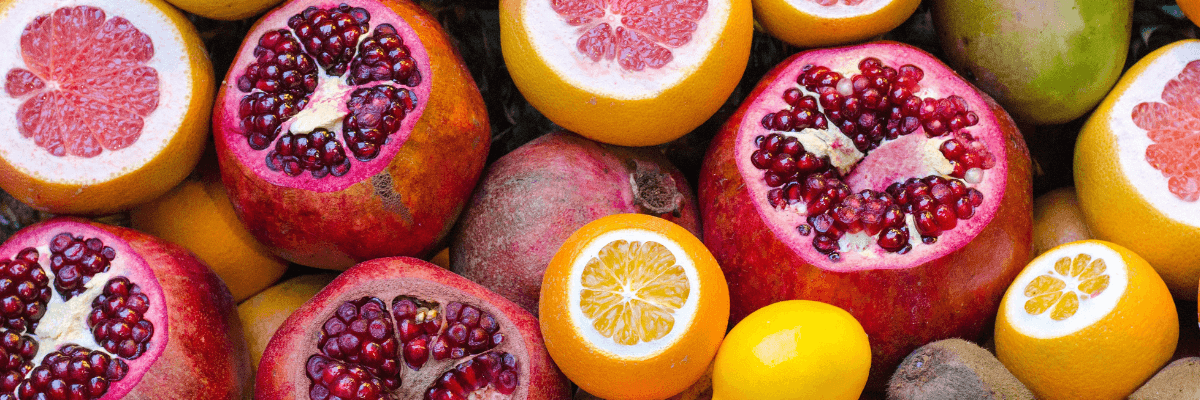
What Antioxidants Do For Your Body
Our body performs millions and millions of metabolic activities every day. It’s mind-blowing, really. However, one of the by-products of all this activity is the creation of free radicals. Free radicals are molecules that are missing one or more electrons and they travel around the body aggressively attacking other molecules in order to replace their missing parts. These aggressive encounters can cause damage to DNA, proteins, enzymes, and cell membranes. Free radical production is also accelerated by environmental toxins like cigarette smoke, pollution and pesticides.
The body can cope with a certain amount of free radicals, but an overload can lead to a lot of trouble including heart disease, liver disease, accelerated aging, and certain cancers. So how can we protect our body from these dangerous free radicals? The answer: Antioxidants.
So you're probably wondering what they are and what antioxidants do for your body?
Antioxidants are electron donors. They seek out free radicals and sacrifice their own electrons in order to neutralize them and put an end to their damaging behaviour. Some antioxidants are produced by our bodies, but some are not. In addition, our body's natural antioxidant production can decline as we age. In order to best equip our bodies in the battle against free radicals, it is best to take in plenty of antioxidants from our diet every day.
Since different antioxidants provide different benefits, let’s take a look at 9 powerful antioxidants and how we can get more of them in our diet.
Vitamin C — Vitamin C is a powerful water-soluble antioxidant which has been shown to also regenerate other antioxidants in the body. Good sources of vitamin C are oranges, kiwi, mangoes, broccoli, spinach, bell peppers and strawberries.
Vitamin E —Vitamin E is a fat-soluble antioxidant which especially protects cell membranes from free radical damage. Good sources of vitamin E are vegetable oils, avocados, nuts, seeds and whole grains.
Selenium — Selenium is an important component of the glutathione peroxidase enzyme which plays an important role in protecting the liver from free radicals. Good dietary sources of selenium are seafood, lean meat, eggs, legumes, and whole grains.
Zinc — Zinc chemically combines with free radicals in order to neutralize them and has been shown to help prevent cancerous cell mutation. Good sources of zinc are seafood, lean meat, eggs, and nuts.
Flavonosid — There are over 4000 compounds classified as flavonoids. They are a diverse group of phytochemicals whose antioxidant work is believed to lower the risk brain-related diseases. Good sources of flavonoids are green tea, citrus fruits, pomegranates, red wine, onion and apples.
Beta Carotene — Beta carotene is a pre-cursor to vitamin A whose antioxidant properties have been shown to decrease the risk of cancer. As a pigment found in plants that gives yellow and orange fruits and vegetables their colour, pumpkin, mangoes, apricots, carrots, spinach and parsley are all good sources of beta carotene.
Lycopene — Lycopene’s antioxidant activity prevents the oxidation of LDL cholesterol, lowering the risk of atherosclerosis and heart disease. Good sources of lycopene include red and pink-colored fruits such as tomatoes, bell peppers, pink grapefruit and watermelon.
Lutein — In tandem with zeaxanthin, this pair of antioxidant carotenoids works together to neutralize free radicals in the macular area, helping prevent eye degeneration. Good sources of lutein include green, leafy vegetables like spinach, kale, swiss chard, and romaine lettuce.
Resveratrol — Resveratrol is a potent polyphenol whose antioxidant properties have been shown to fight aging and cancer. Good sources of resveratrol include red wine, grape juice, blueberries, cranberries, and dark chocolate.
Now that you know what antioxidants do for your body and some different sources, you can boost your daily antioxidant intake. Which can help provide added protection for the body against the damaging effects of free radicals.
With Vitamin C being one of the most common antioxidants that people take, it can be hard to know which one to take. With this considered we wanted to make it easier for you to choose, so we created a blog that breaks down which Vitamin C supplement to can take! https://www.herbesthealth.com/blogs/news/which-vitamin-c-supplement-should-i-take